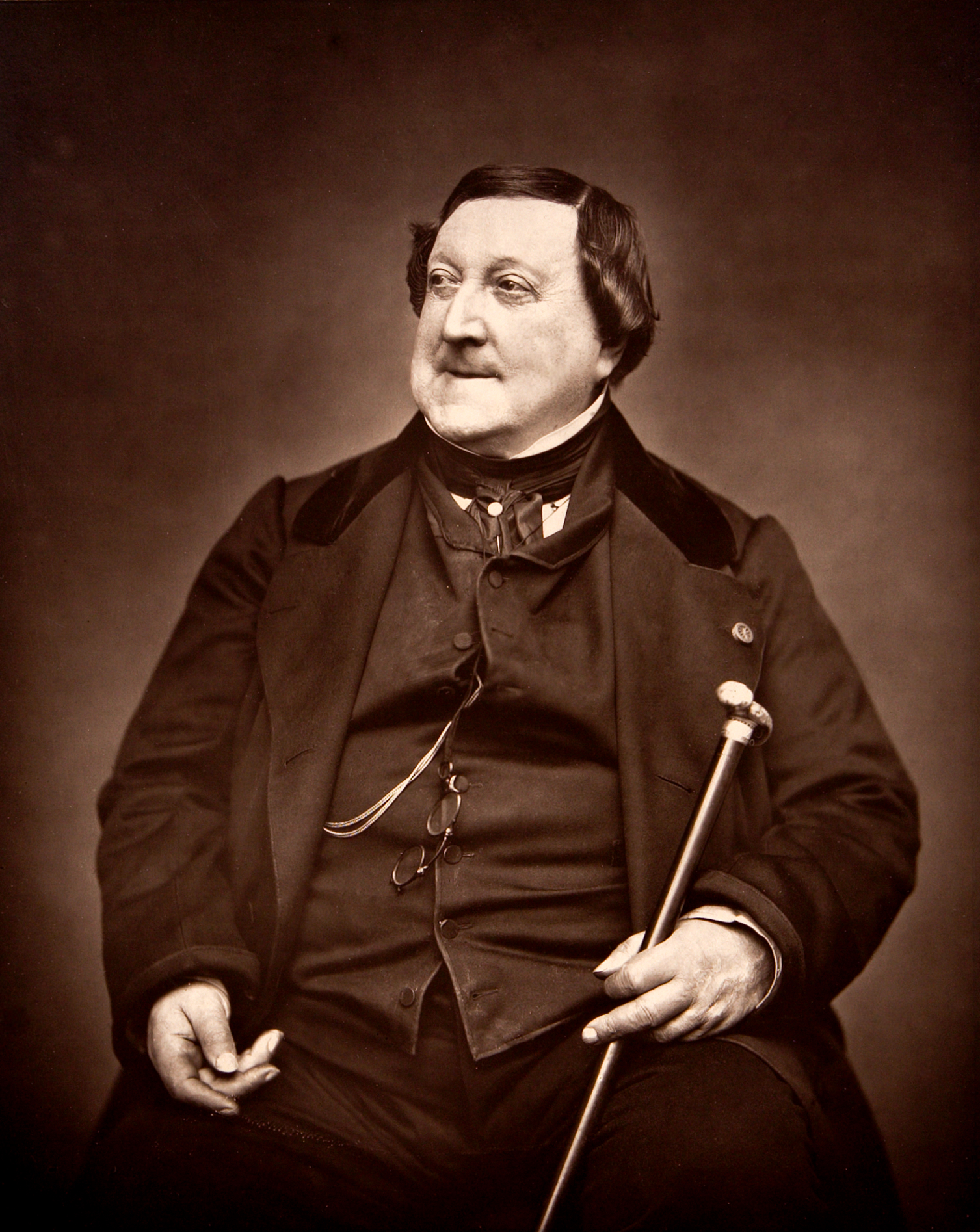Gioacchino Antonio Rossini bol taliansky hudobný skladateľ, ktorý sa preslávil svojimi operami. Hudbu študoval na lýceu v Bologni, a mal len 18 rokov, keď mu uviedli v Benátkach jeho prvú jednoaktovú operu La cambiale di matrimonio. Preslávil sa však až operou Tancredi, uvedenou v roku 1813, ktorá mu priniesla slávu aj v Miláne, Ríme či Neapole. Neskôr sa usadil v Paríži, kde sa stal riaditeľom Théâtre Italien a snažil sa o popularizáciu talianskej opery a o podporu mladých skladateľov .
Bol obdivovateľom viedenského hudobného klasicizmu a diela Mozarta a Haydna silne ovplyvnili jeho opernú tvorbu. Na začiatku svojej kariéry komponoval hlavne komické opery , neskôr komponoval aj vážne opery, ktorej typickým príkladom je opera Wiliam Tell . Spolu skomponoval asi 40 opier, z ktorých najznámejšou sa stala komická opera Barbier zo Sevilly . Okrem opier komponoval aj napr. symfónie, kantáty alebo rôzne komorné skladby. V jeho operách sa uplatňoval spevácky štýl bel canto.
Wikipedia
✵
29. február 1792 – 13. november 1868
•
Ďalšie mená
Gioachino A. Rossini,
Gioacchino Antonio Rossini
